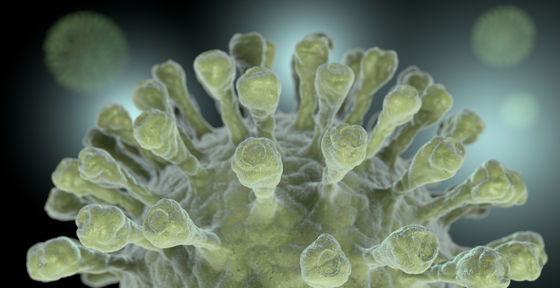Research results show that the new coronavirus is likely to have invaded the brain

The main symptoms of the new coronavirus infection (COVID-19) are fever, sore throat, and cough, but there have been frequent reports of serious effects on the brain. A research team at the University of Washington has published new research on the effects of COVID-19 on the brain.
The S1 protein of SARS-CoV-2 crosses the blood–brain barrier in mice | Nature Neuroscience
COVID-19 virus enters the brain, research strongly suggests: A new study shows how spike protein crosses the blood-brain barrier --ScienceDaily
https://www.sciencedaily.com/releases/2020/12/201217154046.htm
UW Medicine doctor explains study suggesting COVID enters the brain
https://mynorthwest.com/2375747/uw-medicine-study-covid-brain/
The new coronavirus has various symptoms such as fever, dry cough, malaise, smell, loss of taste, stuffy nose, conjunctivitis, sore throat, headache, muscle pain, joint pain, nausea, vomiting, diarrhea, chills and dizziness. It causes symptoms, but sometimes even cases of dementia-like symptoms and damage to the cerebral nerve have been reported.
Research results show that the new coronavirus infection causes serious damage to the brain even if it is mild --GIGAZINE

From these cases, it has been pointed out that the new coronavirus may directly infect the brain or cause neuropathy due to its effect on the immune system, and the effects of the new coronavirus on the brain have been investigated. .. Then, on December 16, 2020, a research team at the University of Washington School of Medicine confirmed that the 'S1 protein' used by the new coronavirus to invade cells exists in the brain through experiments using mice.
The S1 protein is a part of the spike protein used when the new coronavirus invades cells, and is a site that functions separately from the spike protein. Although the S1 protein itself is not a virus, it can also cause damage and release cytokines to cause inflammation.

When the research team administered the radioactive iodine-added S1 protein into the veins of mice, it was found that the S1 protein crossed the blood-brain barrier as well as the lungs, spleen, kidneys, and liver and entered the brain. It was also confirmed that when S1 protein was administered intranasally, it reached the brain even at a dose that was one-tenth that of intravenous administration.
What was confirmed this time is the fact that the S1 protein of the new coronavirus invades the brain, and it is unknown whether the new coronavirus itself invades the brain, but it is possible that the new coronavirus invades the brain. 'The sex has increased considerably,' said William A. Banks, the lead author of the paper. 'The typical symptoms of COVID-19 are related to the respiratory system, but the virus enters the respiratory center of the brain.' That could also be one of the causes. '
In addition, in this experiment, it was confirmed that the diffusion rate of S1 protein in the body of mice was faster in the olfactory bulb and kidneys of males than in females. It has been pointed out that this result may be related to the fact that COVID-19 is more likely to become seriously ill in men.
Related Posts:
in Science, Posted by darkhorse_log







